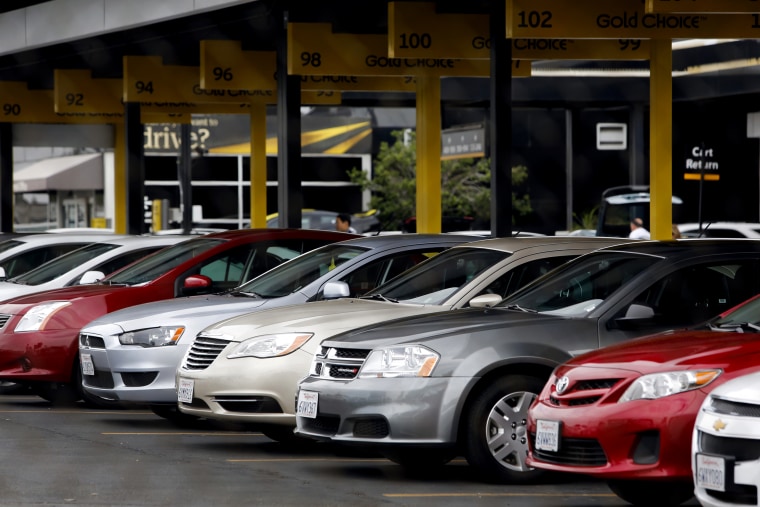Top Ideas To Choosing Car Rental Websites
Top Ideas To Choosing Car Rental Websites
Blog Article
What Can You Do To Verify The Insurance Offered By A Rental Car Company?
It is crucial to examine the options for insurance and coverage that are provided by the car rental firm to avoid any unnecessary costs and make sure you're adequately secured. It is possible to review the insurance coverage of your rental car by following these steps Understanding the Basic Coverage. The first step is to understand the coverage included in the rental agreement. Most rental companies offer basic liability coverage. This covers bodily injuries and property damage to third parties when you're the cause of an accident. This coverage can include deductibles and limits.
Consider Additional Insurance Options. Rental companies provide additional insurance options to safeguard you. Additional protection includes Collision Damage Waiver, which eliminates or reduces your financial liability for damage to the rental car. Loss Damage Waiver covers damage or theft to the vehicle.
Assess Coverage Limits and Deductibles Examine the deductibles and coverage limits associated with each insurance option. Determine the maximum amount the insurance will pay for loss or damage, as well as the amount you must pay (deductible), before coverage begins.
Personal Insurance: Find out whether the auto insurance policy you have on your own or credit card offers protection for rental cars. Some credit card companies offer additional insurance coverage for rental vehicles when you use the card. Similarly, your personal auto insurance policy may provide coverage for rental vehicles, however the coverage amount varies according to your policy and insurance provider.
Review your risk tolerance. Consider both your risk tolerance and financial situation when deciding if you should purchase additional insurance. If you're looking to have security and are concerned about damage to or theft of your vehicle, purchasing additional coverage could be worth it. You could choose not to use the insurance options that rental companies offer when you've got enough insurance.
Ask about Exclusions. Ask the rental company whether there are any exclusions from insurance coverage. Some examples include restrictions on off-roading, unauthorised drivers, or commercial use. It is important to know the conditions and rules of the insurance policy in order to avoid surprises.
Document existing damage: Before taking possession of the rental vehicle, thoroughly inspect it for any damage that is present or indications of wear and tear. Document any scratches, dents or other damages on the rental contract and capture photos or videos to serve as evidence. This will protect the renter from being accountable for any damage that has already occurred when you return the car.
Analyzing the insurance options and other options provided by the rental firm will aid you in making the best decisions. This way you'll be covered throughout your rental time without incurring any unnecessary costs. Take a look at the recommended Car rental for more info including places to rent a car, cars for rent near me, car rental prices, sports car rental, rent car near by me, cheap car hire one way, rent my car, near me rent car, age restrictions for renting a car, rent my car and more.
What Is The Best Way To Inspect The Car For Any Damage Or Wear And Tear?
To avoid being held accountable for previous issues when returning and to avoid being held accountable for any pre-existing issues, you must check the rental vehicle prior to signing. Here are the steps you can follow to ensure that the car is thoroughly inspection:
The exterior of the vehicle for damage such as scratches, dents and other damages.
Pay particular attention to any parts that are prone to damage, such as the doors and bumpers.
Examine for cracks or chips on the windshield.
Check under the car to determine the presence of any damages or leaks.
Interior Inspection:
Shut all the doors, including the trunk, and inspect the inside of your car.
Examine the seats for marks and wear that is excessive.
Make sure that the adjustments on all seats, including the one for the driver, are working properly.
Look for damage to the dashboard, or steering wheel.
Verify the condition and performance of the heating, cooling and ventilation system.
Test the audio system and any other electronic devices, such as turning signals, lights etc.
Functional Inspection:
Start your car and look for any warning lights or error message on the dashboard.
Test your brakes, the clutch and accelerator (if appropriate), to make sure they're all working in a smooth manner.
To check that your headlights and high beams brake light, turn signal all work check them by switching on the lights.
Test the windshield washers, the liquid washer, the horn, and emergency/parking brake.
Record all damages:
Make use of a rental contract form provided by the rental company, or an app on your phone to note any existing damage or issues.
Take photos and videos of your car from a variety of angles. Be sure to focus on any damaged areas or indications of wear.
Notify the area the size, extent, and type of damage for each scratch, dent or other type of damage.
Before accepting the vehicle Before you accept the vehicle, report any damage to the rental representative's attention.
Report Damage
Inform the rental company's representative of any current problems or damage you've noticed during the inspection.
They can send a copy of the inspection report, and record the damage in their records.
You must ensure that you and the representative from the company agree to the contract or inspection reports to confirm any damage already discovered.
If you adhere to these steps and make sure you thoroughly inspect the rental vehicle prior to settling it, for any signs of wear and tear, damage or other indications that you are not protected and enjoy a more pleasant rental experience.
What Are The Things To Consider In Relation To The Conditions And Terms For Returning Your Rental Car?
To ensure a painless and smooth return, it's important to consider a variety of factors when reviewing the terms to return the car. Be aware of the following: The designated drop off Location: Verify that the drop-off location is identified in the rental contract. The car must be returned to the designated location. You should verify the precise location of all drop-off of your rental vehicle.
Acceptable Return Times: Check the agreed upon return times. Rental companies usually state the date and time of return for every vehicle. To avoid any penalties or fees for late payments, return the car before the specified deadline.
Read the policy of the rental company on late returns, including any penalties. Be aware of the consequences of returning the vehicle after the agreed-upon return date, which could include additional fees, late fees, or other penalties. Some rental companies charge the full rental rate per day for late returns.
Extension Options: If you anticipate that you will require the rental vehicle for a longer time than you originally anticipated, ask about extension options. Some rental companies permit renters to extend the rental period subject to availability and extra charges. You can request an extension by calling the rental firm prior to the time.
Requirements for Return Condition: Familiarize yourself with the requirements to return the rental vehicle in a good state. The majority of rental agreements state that the vehicle has to be returned in the same condition as it was when rented. Follow any instructions for cleaning the vehicle or removing personal belongings before returning it.
The vehicle must be inspected After Return. Prior to you return the car to the company it is recommended to conduct an inspection thoroughly. Check for new damages or issues that might have occurred during the rental period. Report any new damage or issues to the representative of the rental company's attention.
Return Process - Know the return process that includes any paperwork and procedures. Follow the instructions given by the rental agency to return keys, filling out paperwork and receiving a final confirmation or receipt.
If you go through these conditions and terms, and look at the above factors you'll be able to comply with the requirements of any rental company and avoid penalties or problems.